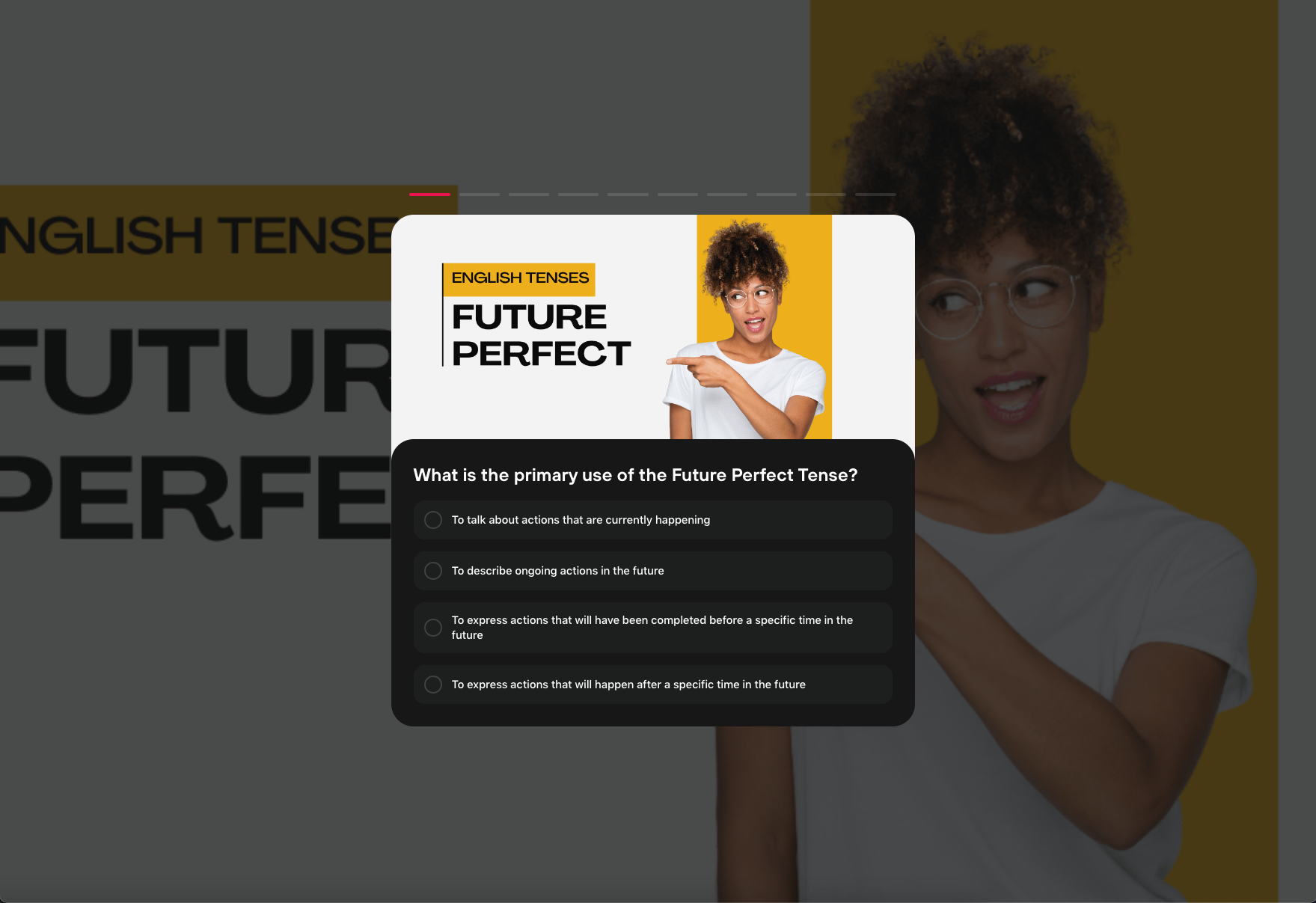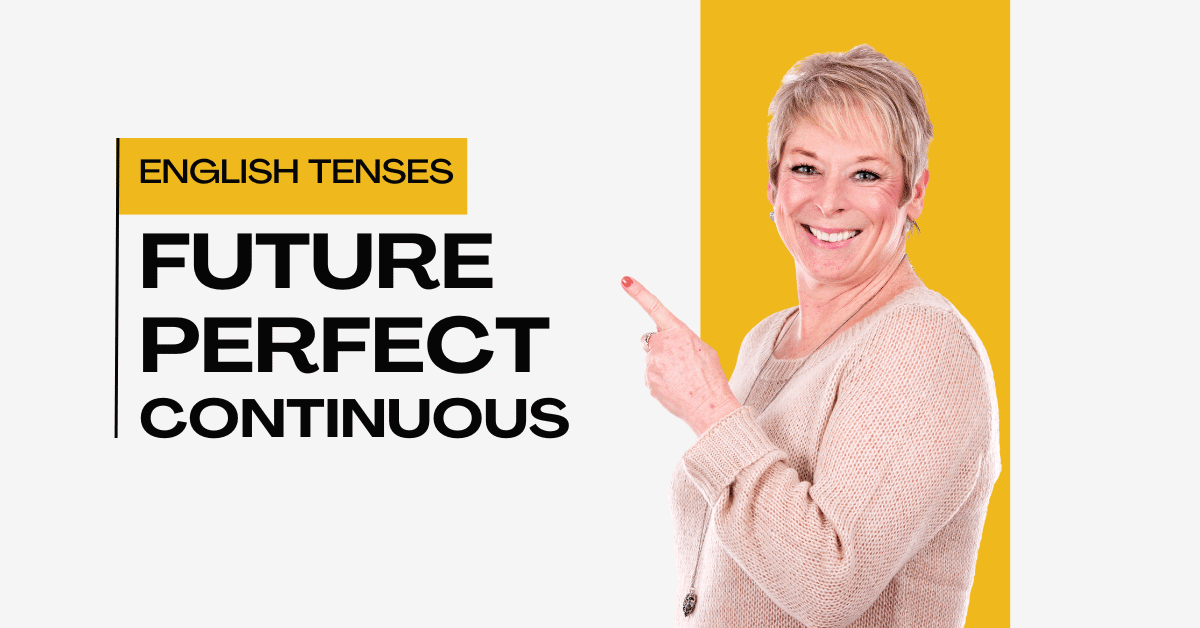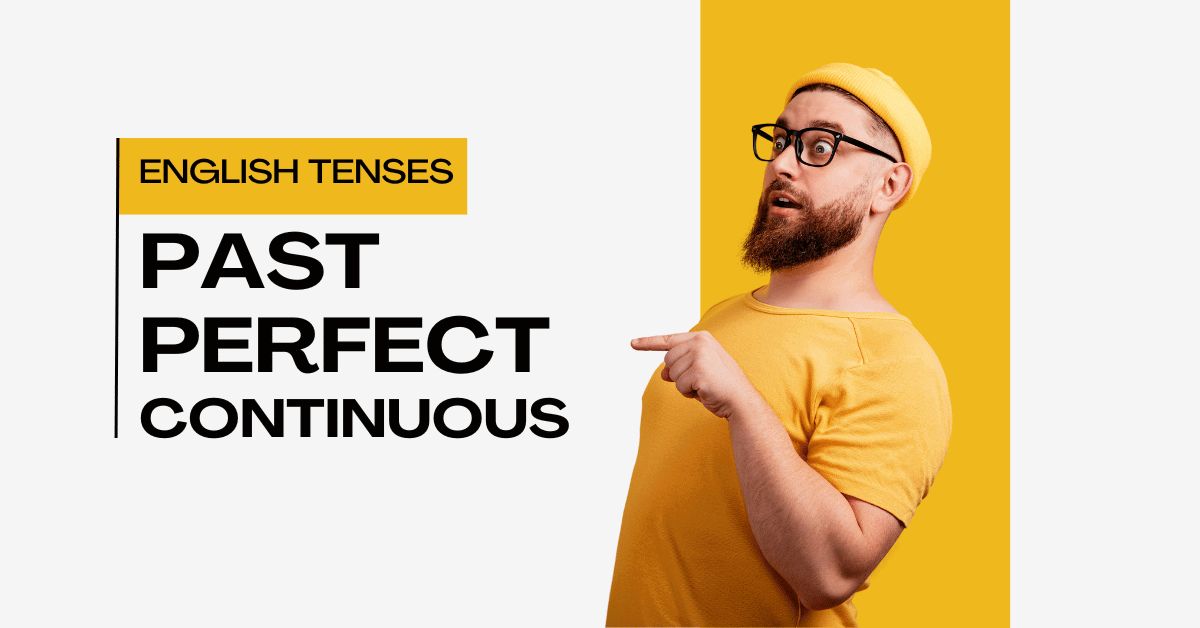Mastering the Future Perfect Tense: Complete Guide with Examples

Mastering the Future Perfect Tense: Complete Guide with Examples
Mastering the Future Perfect Tense: A Complete Guide
The Future Perfect Tense may sound complex, but it’s a powerful tool that allows you to express actions that will be completed before a specific time in the future. It helps you precisely communicate plans, deadlines, or the expected completion of events. Let’s dive into the Future Perfect Tense, how it’s used, and some practical examples to ensure you can use it confidently.
Source: Learn English Coach YouTube Channel
What is the Future Perfect Tense?
The Future Perfect Tense describes actions that will have been completed before a particular moment in the future. It’s like peering into a crystal ball and stating what will be finished by a certain time.
For example:
By next month, I will have finished my English course.
By 10 PM tonight, they will have completed the project.
In each case, the Future Perfect Tense highlights that the action is not just in the future but will already be completed before a specified point.
How to Form the Future Perfect Tense
The formula for forming the Future Perfect Tense is quite simple:
Subject + will have + past participle of the verb
Subject: This can be any pronoun or noun (I, you, he, she, they, etc.).
Will have: This remains consistent for all subjects.
Past Participle: Use the third form of the verb (e.g., “finished” for “finish,” “written” for “write”).
Let’s look at a few examples:
She will have learned French by the time she moves to Paris.
They will have built the new community center by next summer.
We will have visited five countries by the end of the year.
When to Use the Future Perfect Tense
Understanding when to use the Future Perfect Tense is key to mastering it. This tense is perfect when you want to express:
1. Actions Completed Before a Specific Future Time
Use the Future Perfect Tense to describe something that will be done before a particular time.
Example: By the time you arrive, I will have cleaned the entire house.
2. Predictions About the Future
When making predictions about what will already be finished in the future, the Future Perfect Tense is your go-to.
Example: By 2050, scientists will have discovered new ways to combat climate change.
3. Expressing Duration Up to a Point in the Future
The tense can also be used to talk about how long something will have continued up until a certain future time.
Example: By next month, I will have been in this city for five years.
Common Pitfalls with the Future Perfect Tense
While the Future Perfect Tense is straightforward, there are a few common mistakes to avoid:
1. Confusing it with the Future Simple Tense
The Future Simple (“will” + verb) is often used when people mean to use the Future Perfect.
Incorrect: By the time he arrives, I will clean the room.
Correct: By the time he arrives, I will have cleaned the room.
2. Forgetting the Past Participle Form
Remember, the Future Perfect Tense always requires the past participle form of the verb. It’s not enough to just use the base form.
Incorrect: They will have complete the task.
Correct: They will have completed the task.
Using Time Expressions with the Future Perfect Tense
Time expressions are a vital part of using the Future Perfect Tense correctly. They give the sentence context and show when the action will be completed. Common time expressions include:
By + a specific time: “By 5 PM,” “By tomorrow morning”
By the time + a clause: “By the time you read this,” “By the time she gets here”
In + a period: “In two weeks,” “In a year’s time”
Example Sentences:
By the end of the year, they will have launched their new product line.
In five years, we will have saved enough money for a down payment on a house.
By the time you finish this article, you will have mastered the Future Perfect Tense!
Why Use the Future Perfect Tense?
You might wonder why you should bother with the Future Perfect Tense when other future forms seem easier. Here are a few reasons:
Clarity in Communication: It allows you to specify that an action will already be finished before a future moment. This is especially useful in professional or academic writing.
Sophisticated Tone: Using this tense can elevate your speech or writing, making it sound more polished and advanced.
Precision in Planning: It’s perfect for discussing deadlines, milestones, and future achievements.
Practical Examples for Daily Use
Now that you know the theory let’s see how the Future Perfect Tense can fit into everyday conversation:
Planning a Vacation: “By the time we reach the hotel, we will have traveled for 10 hours.”
Work Goals: “By next Friday, I will have completed all the reports.”
Fitness Goals: “By the end of this month, I will have lost 5 kilograms.”
Long-term Projects: “In two years, they will have built their dream home.”
Wrapping Up: Practice Makes Perfect!
The Future Perfect Tense may take some time to get used to, but with practice, you’ll find it’s a valuable addition to your English toolkit. Use it to express actions that will be completed before a specific time, and you’ll communicate with more clarity and confidence.
Whether you’re planning future achievements, predicting outcomes, or setting deadlines, the Future Perfect Tense has you covered. So, go ahead—make a few sentences of your own, and soon you will have mastered this powerful tense!
FREE Quiz
Take our free quiz to test your knowledge of the Future Perfect tense.” 👉 Click Here to Start the Quiz






